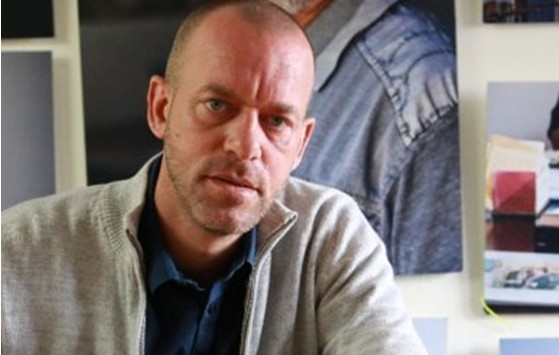A bill allowing the government to deport relatives of convicted Palestinian “terrorists” passes last Tuesday, February 6, a preliminary reading 17-6 in the Knesset plenum. The bill, sponsored by MK Almog Cohen of the racist Otzma Yehudit party, allows the interior minister to order the deportation of family members who either had advance knowledge of a planned attack or subsequently expressed their support for their relative’s actions.
During the vote Hadash-Ta’al lawmakers Ahmad Tibi, Youssef Atawneh and Ofer Cassif, as well Ra’am (United Arab List) MK Waleed Taha, left the plenum in protest.

The Palestinian attorney Salah Hamouri who was deported from Israel to France in December 2022 (Photo: Justice for Salah)
Cohen, who is currently under investigation in a decade-old police brutality case, has courted controversy throughout his short political career. He has been reprimanded by the Knesset’s Ethics Committee for making racist remarks and was recorded screaming at family members of hostages being held by Hamas in Gaza during a Knesset committee hearing on proposed legislation to impose the death penalty on terrorists.
The Knesset passed last year legislation allowing for the deportation of Arab-Palestinian citizens of Israel or Palestinians residents of East Jerusalem if they are convicted of a terror act and have allegedly received compensation from the Palestinian Authority for committing it. In December 2022, a Palestinian attorney, Salah Hamouri was deported from Israel to France, with the Israeli Interior Ministry citing security concerns. The French government condemned the move, claiming that the move violated his right to live in his native Jerusalem. Hadash MKs condemned the deportation and stated that Israel was committing a war crime and the expulsion was ethnic cleansing.
Another bill criminalizing the denial, minimization or celebration of the Hamas October 7 deadly attack on southern Israel passed a preliminary reading 29-0 in the Knesset plenum on Wednesday, February 7.
In a series of tweets ahead of the vote, sponsor far-right Yisrael Beytenu MK Oded Forer, who modeled his bill after a 1986 law prohibiting Holocaust denial, said the way in which people around the world relate to the massacre “is starting to resemble Holocaust denial, and it also has fans here in Israel.”
The legislation, which was supported by the Ministerial Committee for Legislation, mandates prison sentences of five years for making statements denying the massacre or “downplaying its dimensions” as well as prohibiting expressions of “praise, sympathy or identification” with the attack.
Arguing in favor of the legislation in the plenum on Wednesday, Justice Minister Yariv Levin said that it had been brought as a private member’s bill because he had been unable to promote it as government legislation due to opposition from the government’s legal advisers.
Beyond setting an example abroad, the bill is also intended to fight denial domestically, Forer said after the vote, declaring that “we must not allow groups within the country to destroy and damage the memory of the victims.” Forer may have been alluding to his recent efforts to expel Hadash lawmaker Cassif from the Knesset.
The massacre denial bill has raised concerns among some human rights organizations over its potential impact on free speech, especially given the large number of police investigations and indictments against Arab-Palestinian citizens of Israel since the war in Gaza began. “The criminalization of expressions should be preserved for extreme circumstances where there is a real and imminent threat, such as incitement to violence,” Association for Civil Rights in Israel’s Att. Gil Gan-Mor told The Times of Israel. “The denial of the massacre is regrettable and flagrant, but it is not one of those extreme cases.” Because the law is formulated in an ambiguous manner, it will be hard to predict how it will be enforced, creating “a chilling effect on freedom of expression,” Gan-Mor said, who heads ACRI’s Civil and Social Rights units.
“In an era where people are constantly exposed to misinformation and fake news on social networks, which authorities struggle to deal with, there is a need to be especially cautious with the restriction of expressions that constitute a denial of events. In Israel, there are quite a few people who deny the Nakba for example. Dealing with these issues should be through arguments and education, not draconian laws,” he agreed.
Related: https://maki.org.il/en/?p=31573


